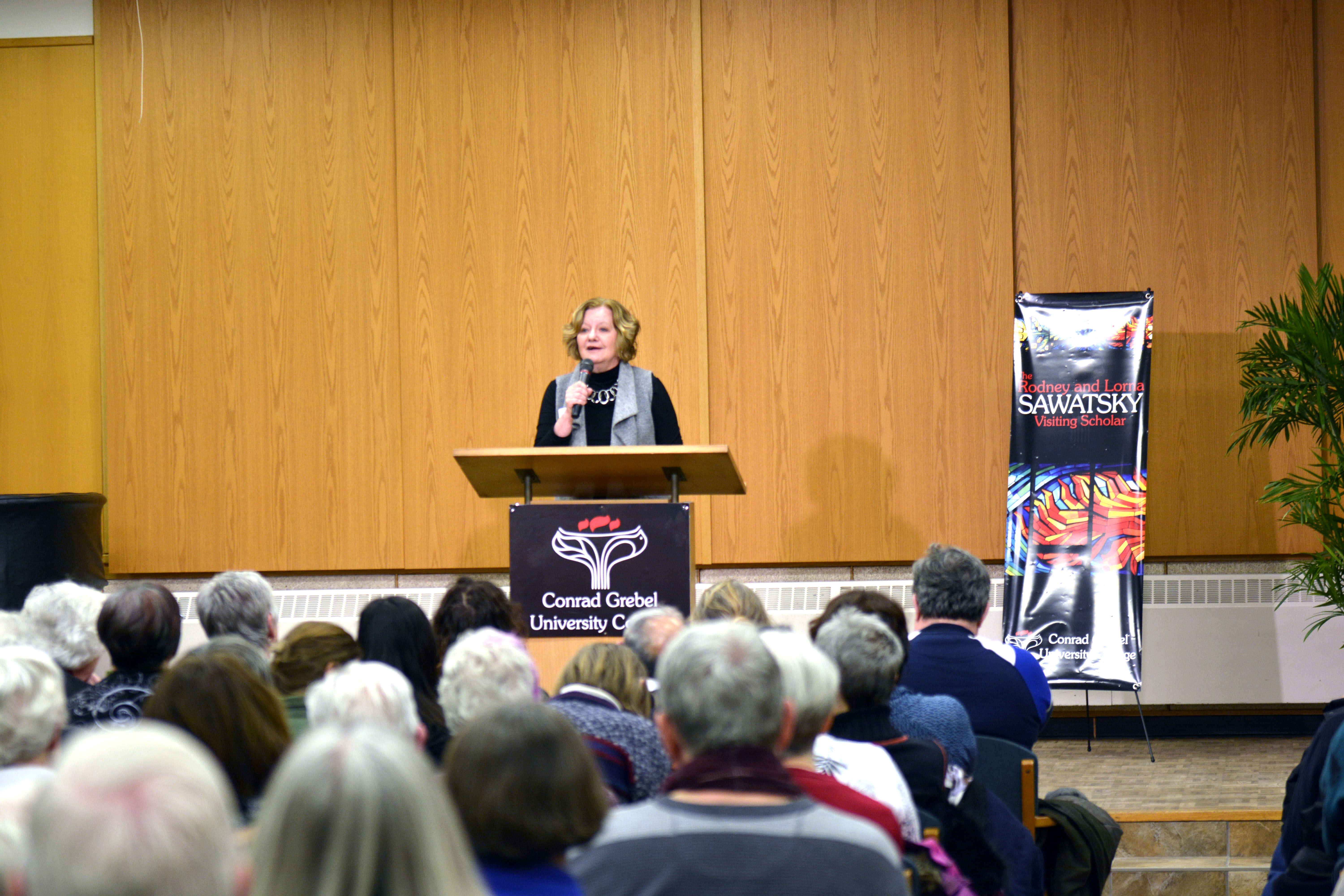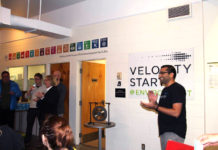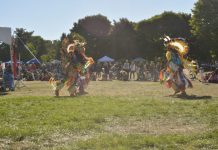Dr. Mary Jo Leddy shared an optimistic vision for Canada and its immigration policies in her lecture, “Room enough for hope: Canada’s response to the refugee crisis” March 3. Leddy is a writer, theologian, social activist, and founder of Romero House, a transitional housing organization for refugees. During the lecture, she shared her own experiences and the experiences of refugees she has met in order to highlight some realities of being a refugee in Canada.
Leddy attended as part of the annual Rodney and Lorna Sawatsky Visiting Scholar Lecture. The series was established in 2004 and seeks to bring renowned scholars’ expertise to the Grebel community, where Rodney Sawatsky served as academic dean and president for 10 years.

Hope was a central part of Leddy’s lecture, which sought to share a message of optimism in the face of growing immigration concerns.
“We can have these conversations about ‘should we let them in?’ or ‘are we going to be safe?’ … but the real question is ‘is there room for hope in this country?’” Leddy said.
The question of hope was an important one, as Leddy did not shy away from the negative aspects of Canadian culture regarding immigration. For example, she highlighted a practice among Canadian lawyers who met with refugee claimants — afterwards sending a bill to Legal Aid Ontario for services rendered — and provided those claimants with a fabricated story to tell the Immigration and Refugee Board. These immigrants were all given the same story by these lawyers, and it rarely worked: when the Immigration board would ask in-depth questions about their supposed background, immigrants would be unable to keep up the charade and wind up being refused. Essentially, lawyers were profiting off of a vulnerable population while ruining their hopes of actually being accepted into Canada.
“I saw corruption in my own country, the corruption of members of the legal profession. I have never seen that before,” Leddy said.
Leddy also experienced the mistreatment of refugees in her own work with the Romero House. When Romero House made a “very simple request,” according to Leddy, at a Committee of Adjustment meeting to improve the Romero House garage’s electricity, the request was shut down by neighbours who came to protest.
“They weren’t exactly carrying pitchforks,” Leddy said of the protest at the meeting, “but they could have been. They had signs, they were yelling, they were screaming, they stood up and they said ‘Never, ever on our street. There’s going to be drugs, and there’ll be prostitution, and it’s going to be nine stories high, that building. They’re going to fill it with refugees and they’re going to be looking down on us.’ It was horrible. It was violent, it was vicious, and it would have gone on for hours, except the chairman stopped it.”
In the end, Leddy withdrew the electricity request in order to quell the protest.
“We did not want newcomers to have to face that as their first experience in Canada,” Leddy said, explaining her concession.
However, Leddy discovered hope even within the neighbourhood, which eventually came to accept refugees and come together as a community. The process for integration was surprisingly mundane, starting with a neighbourhood barbecue and bolstered by what Leddy described as “a thousand small acts of kindness,” and eventually culminating in a neighbourhood where the refugees are considered an integral part.
“My learning is simply ‘change takes a long time,’” Leddy said.
Leddy broadened her experiences to reflect the political climate of Canada.
“In times of insecurity and threat, we as a country become a closed, mean little garrison … We are not just the nice Canadians automatically.”
“These two attitudes towards the stranger … [they] exist in our country,” Leddy said. “In times of insecurity and threat, we as a country become a closed, mean little garrison. In our history, we have interned Japanese-Canadians, we have turned away Jewish refugees, we have taken the children from Jehovah’s Witnesses, we have excluded Aboriginals … we are capable of this. We are not just the nice Canadians automatically.”
“And yet we also have these moments, like with the Vietnamese people and the Syrian refugees, where we experience ourselves as a country as generous, as good, as capable of being just and caring people,” Leddy added.
Ultimately, the choice to be hopeful is a decision that each Canadian is responsible for, as Leddy spoke to.
“I think it’s up to each one of us to say ‘what do I choose to believe in? What do I choose to work for? Do I want to be part of a mean, nasty, suspicious little country, or do I want to be part of a generous, good country?’ There’s a choice for each one of us,” Leddy concluded.































